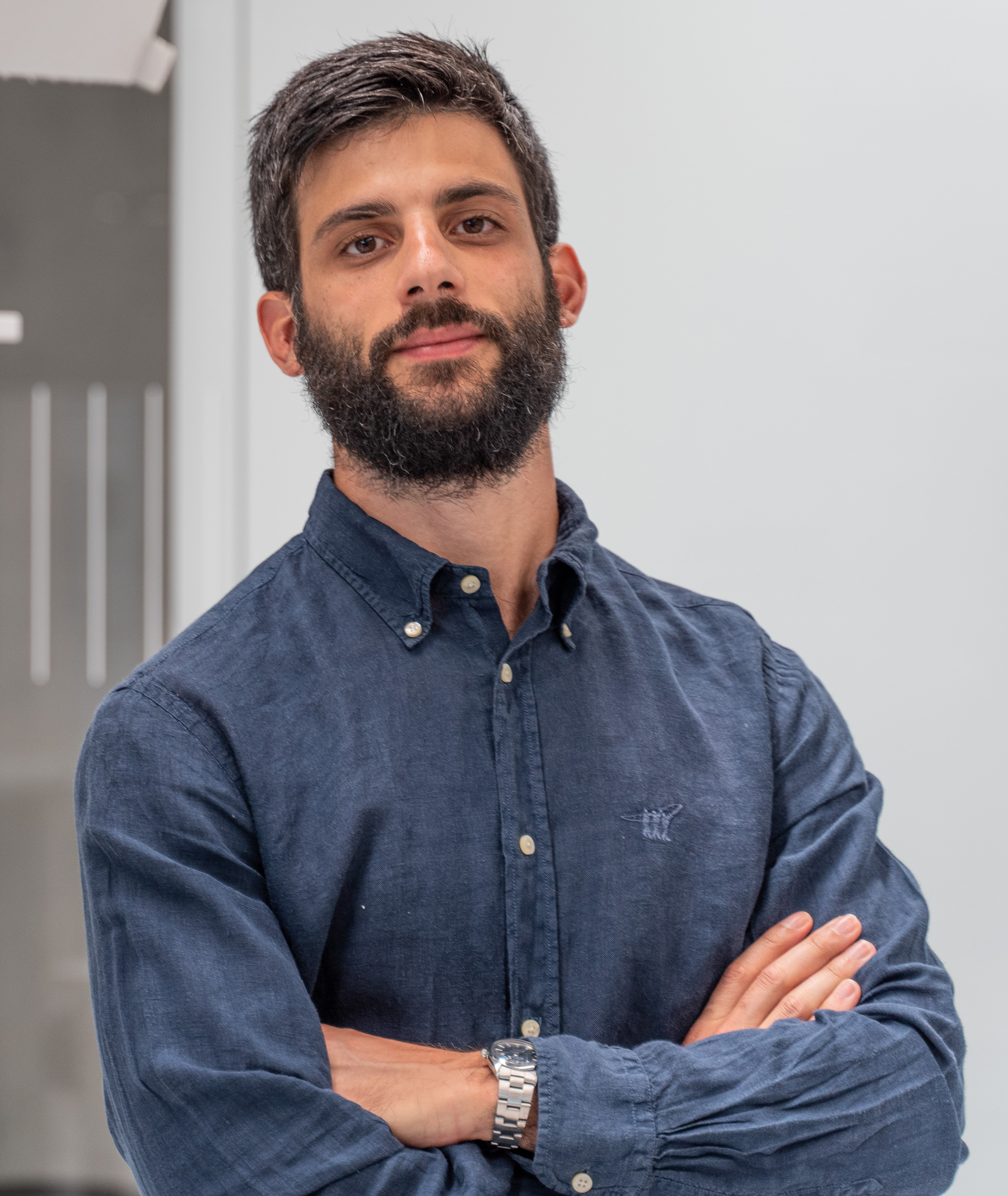Prix Média
«We bear a great responsibility»

13 July 2021
Author: Astrid Tomczak-Plewka
Simone Pengue, how did you get to hear about the PM Newcomer prize?
I sometimes work for the communication agency «catta». One day, its founder sent me an e-mail with the competition call for entries and the words: ‘Hi, this would be something for you’. And here I am!
How did you choose your topic?
Actually, it was through an introductory event on data management as part of my doctoral studies at the University of Basel. We were told what we should do with our data – and I then asked myself: Ok, so I store my data on this server – and then what? For how long will they be stored there, what happens to them and who has access to them? I then did a little research on the Internet and found that these questions are slowly becoming an issue. As regards implementation, I decided on the documentary with German, English, French and Italian subtitles, because that way I can reach many more people than if I write an Italian text, as I usually do as a science journalist. So, it was a pragmatic decision. It increases my chances in the public voting (laughs).
How does science journalism differ from other forms of journalism?
A lot of competence and insider experience are needed for science journalism. It’s not sufficient to acquire knowledge by reading, one needs experience from the world of research. Most of the population doesn’t know that much about research, so you can tell them anything. That’s very dangerous, so we bear a great responsibility and have to be careful about what we communicate. This has been demonstrated increasingly in the pandemic in particular: you have to be capable of reading and interpreting data correctly, and judging their significance – otherwise you only create confusion.
What can the «old hands» learn from you?
To be honest, I take the view that the style of communication should be revised in science journalism in Switzerland. Science journalism in Switzerland is correct and of high quality, but the challenge is to become more attractive to a young audience. Of course, there are also some very good examples – I can speak mainly for Italian products and here Giovanni Pellegri comes to mind, who does some really excellent work at L’ideatorio in Ticino. In the international context, I’m thinking of the BBC, for example.
«I don’t see why Switzerland can’t reach the level of the BBC, we have the prerequisites to do so.»
What can you learn from the «old hands»?
Journalistic principles, such as how to structure a text, how to classify information, what makes a good introduction to a text. And also, the journalist’s code of honour – because it’s easy to act naively. For example, an experienced journalist once told me that it’s an absolute taboo to write about one’s own research. I thought about it and came to the conclusion – yes, she’s right! Finally, some very practical things too: as an independent journalist, how do I promote an article, how high a fee can I charge? I’m very grateful that I have colleagues in the Club for Science Journalism who can advise me on such matters.
What would you do with the prize money if you were to win?
First of all, pay all expenditures. A film production is very expensive, you can’t do it on your own. I’m fortunate that my brother is a filmmaker, he’s invested a lot of work and time, I would like to compensate him for this effort. I have also acquired quite a lot of equipment. Then I have to pay for the translation. I also rented a flat specially, as the shooting takes place in Basel, but I live in Lucerne and my brother in Ticino. All in all, there are about a dozen people involved in the project, interlocutors, advisors or for special effects in the film. I would like to invite them all to a really good dinner!
Biography
Simone Pengue was born (in 1992) and raised in Ticino and today lives in Lucerne. He studied physics in Como and Fribourg and graduated with a master’s degree. He is currently a biophysics doctoral student at the Biozentrum, University of Basel. In addition to his studies, he enjoys writing – in 2020, for example, he published an essay on the Italian Renaissance humanist Francesco Petrarca in an Italian literary volume. He recently published an article in which he compares Dante’s 12th Inferno to quantum mechanics. Since 2018, he has also been working as a freelance science journalist, and since 2019 he has been a member of the Swiss Club for Science Journalism. He learned the basics of documentary filmmaking at a workshop of the Swiss Academy of Sciences.
Lucie Stooss
Swiss Academies of Arts and Sciences
House of Academies
Laupenstrasse 7
P.O. Box
3001 Bern
Switzerland